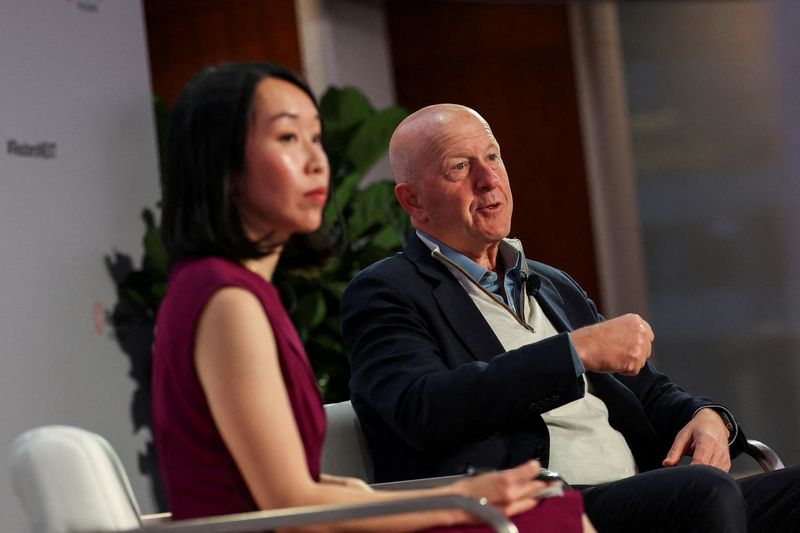By Isla Binnie and Megan Davies
NEW YORK (Reuters) – Artificial intelligence is expected to show big gains in productivity at banks, panelists said at the Reuters Next (LON:NXT) conference in New York, but it has so far been harder to make money from the technology.
Major banks have been applying AI to virtual assistants for clients and introduced tools for employees to use for human resources, risk, compliance and finance as well as trying to develop products within wealth management.
Goldman Sachs Chief Executive David Solomon told the Reuters Conference on Tuesday that deploying machine learning and AI could improve productivity in areas including coding.
“We have 11,000 engineers. We do an enormous amount of coding,” Solomon said. “If we can increase with these tools their coding productivity by 20 or 30%, it’s a huge tailwind for us.”
Fellow U.S. bank BNY is also investing in AI tools, CEO Robin Vince told the conference.
“We have thousands of people at BNY who are now enabled to be able to build and commission agents to be able to help them with their daily tasks,” Vince said.
However, AI is not helping financial firms make money yet. Banks still need to specify their exact use cases for the technology, the chief AI and data officer of BMO Financial Group told the conference on Wednesday.
“The hype cycle brought a lot of positive attention to this space. I am chief AI officer now because there was a little bit of a hype cycle,” said Kristin Milchanowski, who was appointed to the role at BMO, one of Canada’s largest banks, in October.
“I do believe that people thought it was going to impact the revenue or have a cost takeout different from what the effect actually has been,” Milchanowski said, adding, “We’re not seeing revenue-generating activity.”
So far, AI has been most useful in tasks such as shrinking the time BMO’s equities teams need to produce reports – an important part of many investment banks’ offerings – from more than four hours a day to less than one, leaving the analysts free to do more creative tasks.
It is important to identify specific use cases for AI in the future, Milchanowski added, and pinpointed potential applications in optimising trades and generating clients.



